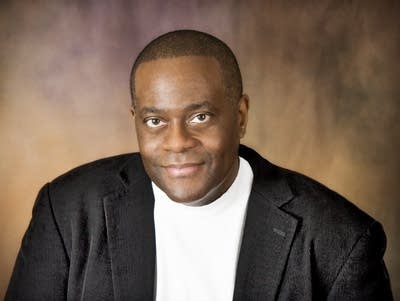
A woman I was once seated next to at a dinner party told me that she listened to the final movement of Beethoven's Ninth Symphony every day. She wasn't a musician, but she was a lifelong classical music lover and her deep affection for this giant of the repertoire was truly touching, especially when she confessed that listening to the Ninth Symphony never failed to make her cry. I told her that, although I didn't know anyone else who listened to the "Ode to Joy" every day, I know plenty of people who are moved by it, myself included.
Our conversation took a turn though, when I told her that I tended to start getting choked up in the third movement, 10 minutes or so before the first singer enters. That was when my dinner companion told me that the version of the piece that brought forth tears from her was the three-and-a-half-minute arrangement by shaggy-haired, Dutch violinist and PBS pledge-week favorite, André Rieu.

She explained that she was well aware that Mr. Rieu had chopped out about 20 minutes from the original. But her mother had been a soprano who often crooned the "Ode to Joy" while doing housework. And because the version of Beethoven's masterpiece she'd heard around her house when she was young — with no low voices, no orchestral interludes — was far closer to Rieu's arrangement than it was to the original, it was André Rieu's treatment that prompted her weeping.
Not long after that party, I went to the symphony to hear a performance of Prokofiev's Romeo and Juliet. I went to that concert with a friend who had previously professed his distaste for classical music and only came along because the original ticket holder couldn't make it.
The Romeo and Juliet score happens to be the piece I am most likely to mention whenever I'm asked to name my favorite piece of music, but it is a big chunk of music for a novice. Before the concert, I tried to be helpful by suggesting some things he might listen for. And I had planned to signal for him to pay special attention during the performance as a couple of my favorite moments came up. But my friend didn't need my help. He was wiping away tears with the backs of his hands from the start of "The Montagues and the Capulets" and was still struggling to compose himself during the bows half an hour later. Walking away from the concert hall, he told me that the music had come closer to expressing his innermost feelings about how gang violence had affected his life than any words he'd ever heard. His summation, paraphrased here to avoid the two obscenities he used, was, "[Forget] West Side Story. This is the [stuff]."
One piece of music that is almost always guaranteed to bring tears to my eyes is Samuel Barber's Knoxville: Summer of 1915. I have musician friends who aren't fond of the piece and can make a good case for it being one of Barber's weaker works. I have literary-minded colleagues who find the text, an abbreviation of James Agee's preface to his novel A Death in the Family, problematic. And they are happy to enumerate the flaws they see in it.

I love Knoxville: Summer of 1915 for a reason that runs deeper than any judgment about the quality of the composition or the text. The piece makes me cry for the same reason any work of art makes anyone cry: When I hear it, I know that it was composed especially for me. And in the final section, when the singer describes lying in the backyard on quilts, listening to the voices of her parents, aunt, and uncle, I am convinced that, having somehow toyed with the space/time continuum, Barber and Agee got together one August night and peeked over the fence of my family's old house in Indiana. And clearly they did it in order to lay a trap for me, so that decades later, when most of the voices I had fallen asleep listening to outside on that lawn were stilled by death and illness, I would listen and dissolve into a puddle of tears.
One emotional night at the symphony didn't transform my friend into a classical music lover. But he did buy a recording of Prokofiev's Romeo and Juliet. It became the one classical recording among his hundreds of funk and Quiet Storm soul CDs. And I've never learned to truly appreciate André Rieu, although I did once write a story about a rabid waltz fan for whom Rieu's music was, literally, a lifesaver. I will never attempt to convince my colleagues who don't like Knoxville: Summer of 1915 that it's worth crying over. I'll just continue to pull out a handkerchief whenever I hear it. Like the classical music newbie who heard Prokofiev's Romeo and Juliet as a lamentation on the toll of gang violence, and the charming lady who heard her mother singing when she listened to André Rieu's abridged Beethoven, I hear Knoxville: Summer of 1915 and I know that it was written just for me.
Edward Kelsey Moore lives and writes in Chicago, where he also enjoys a career as a professional cellist. Edward's short fiction has appeared in numerous literary magazines and has been performed on National Public Radio. A New York Times bestseller, The Supremes at Earl's All-You-Can-Eat, is Edward Kelsey Moore's first novel.
Love the music?
Show your support by making a gift to YourClassical.
Each day, we’re here for you with thoughtful streams that set the tone for your day – not to mention the stories and programs that inspire you to new discovery and help you explore the music you love.
YourClassical is available for free, because we are listener-supported public media. Take a moment to make your gift today.

